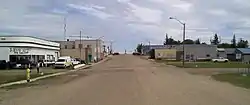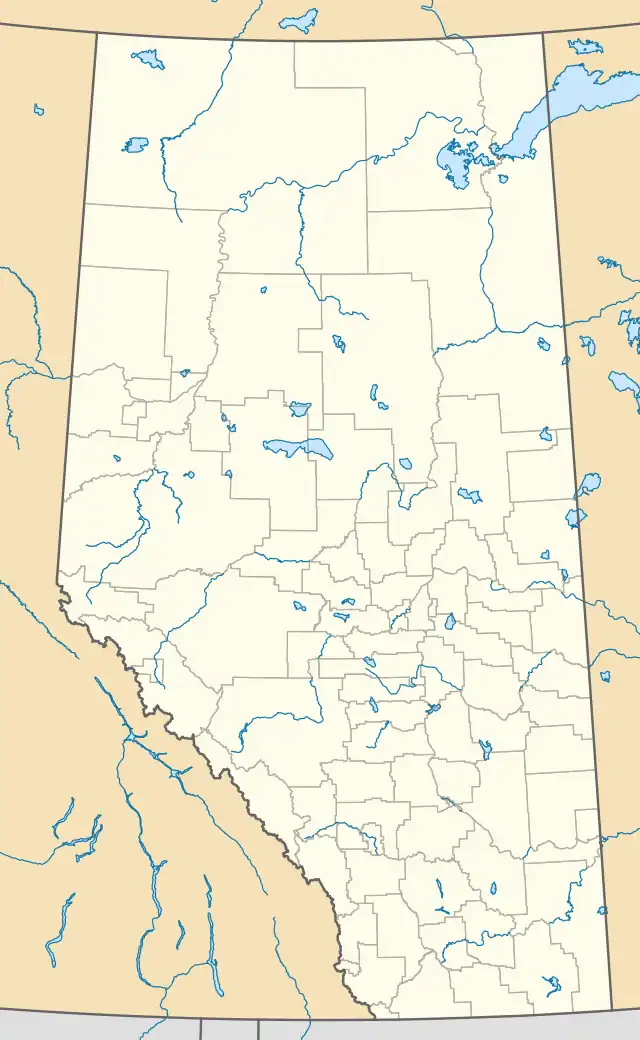Holden | |
|---|---|
| Village of Holden | |
 Main street | |
| Motto: Share the Charm of Country Living | |
 Holden | |
| Coordinates: 53°13′59″N 112°14′6″W / 53.23306°N 112.23500°W | |
| Country | Canada |
| Province | Alberta |
| Region | Central Alberta |
| Census Division | No. 10 |
| Municipal district | Beaver County |
| Incorporated[1] | |
| • Village | April 14, 1909 |
| Government | |
| • Mayor | Douglas Hanson |
| • Governing body | Holden Village Council |
| • CAO | Sherry Garbe |
| Area (2021)[3] | |
| • Land | 1.55 km2 (0.60 sq mi) |
| Elevation | 686 m (2,251 ft) |
| Population (2021)[3] | |
| • Total | 338 |
| • Density | 217.7/km2 (564/sq mi) |
| Time zone | UTC-7 (MST) |
| • Summer (DST) | UTC-6 (MDT) |
| Postal Code | |
| Area code | 780 |
| Highways | 14 855 |
| Waterways | Creeks in the area form the head of Vermilion River |
| Website | Official website |
Holden is a village in central Alberta, Canada. It is located south of Vegreville. The village is named after former Alberta MLA James Holden.
Demographics
In the 2021 Census of Population conducted by Statistics Canada, the Village of Holden had a population of 338 living in 171 of its 205 total private dwellings, a change of -3.4% from its 2016 population of 350. With a land area of 1.55 km2 (0.60 sq mi), it had a population density of 218.1/km2 (564.8/sq mi) in 2021.[3]
In the 2016 Census of Population conducted by Statistics Canada, the Village of Holden recorded a population of 350 living in 146 of its 167 total private dwellings, a change of -8.1% from its 2011 population of 381. With a land area of 1.74 km2 (0.67 sq mi), it had a population density of 201.1/km2 (521.0/sq mi) in 2016.[4]
 Cenotaph in middle of main street
Cenotaph in middle of main street
Notable people
- Dale Armstrong, drag racer
- Ted Newall, businessman
See also
References
- ↑ "Location and History Profile: Village of Holden" (PDF). Alberta Municipal Affairs. October 21, 2016. p. 372. Retrieved October 23, 2016.
- ↑ "Municipal Officials Search". Alberta Municipal Affairs. May 9, 2019. Retrieved October 1, 2021.
- 1 2 3 "Population and dwelling counts: Canada, provinces and territories, and census subdivisions (municipalities)". Statistics Canada. February 9, 2022. Retrieved February 9, 2022.
- ↑ "Population and dwelling counts, for Canada, provinces and territories, and census subdivisions (municipalities), 2016 and 2011 censuses – 100% data (Alberta)". Statistics Canada. February 8, 2017. Retrieved February 8, 2017.